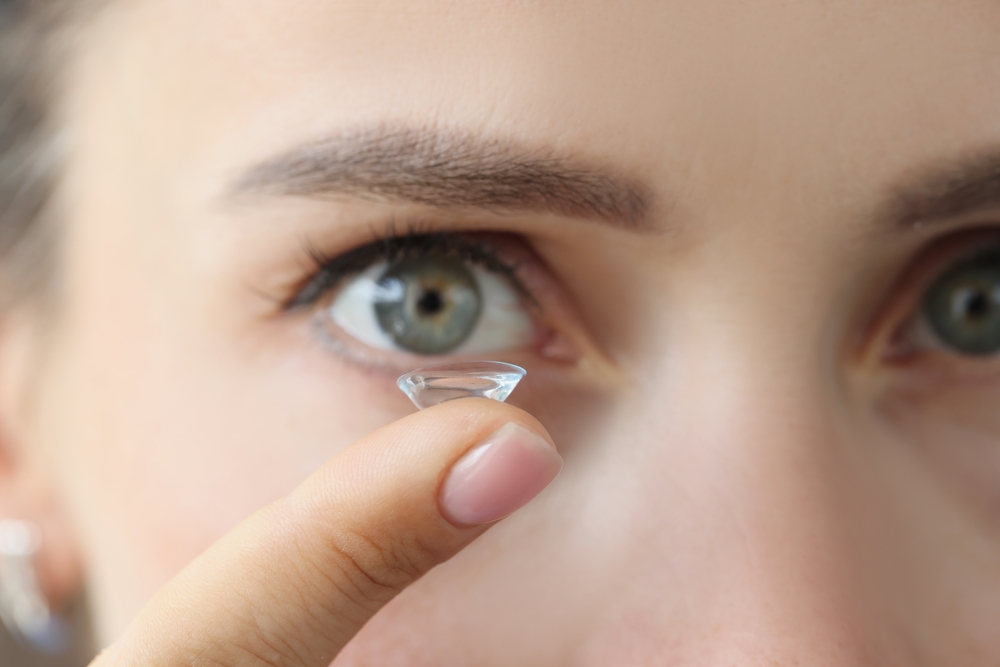Contact Lens Care: Tips for Healthy and Comfortable Wear
Blog:Contact Lens Care: Tips for Healthy and Comfortable Wear

Contact Lens Care: Tips for Healthy and Comfortable Wear
Contact lenses have become an increasingly popular choice for vision correction, offering a convenient and discreet alternative to traditional eyeglasses. However, proper contact lens care is essential to ensure the health and safety of your eyes.
Different Types of Contact Lenses
Contact lenses come in a variety of materials, designs, and wearing schedules. Familiarizing yourself with the different types can help you make an informed decision and ensure that you are using the right lenses for your needs.
- Soft Contact Lenses: These are the most common type of contact lenses, made from flexible, breathable materials that conform to the shape of your eye. They are available in daily, weekly, and monthly replacement schedules.
- Rigid Gas Permeable (RGP) Lenses: Also known as hard contact lenses, these are made from a more durable, rigid material that allows oxygen to pass through to the cornea. They are generally more long-lasting than soft lenses.
- Hybrid Lenses: These lenses combine the comfort of soft lenses with the visual clarity of RGP lenses, providing a blend of benefits.
- Specialty Lenses: This category includes lenses designed for specific conditions, such as astigmatism, presbyopia, or keratoconus.
Understanding the unique features and requirements of each lens type is crucial for ensuring proper care and maintenance.
The Importance of Contact Lens Care
Proper contact lens care is essential for maintaining the health and comfort of your eyes. Neglecting this aspect can lead to a range of problems, including eye infections, corneal abrasions, and even vision loss in severe cases. By following recommended care and hygiene practices, you can significantly reduce the risk of these issues and enjoy a safe, comfortable, and long-lasting lens-wearing experience.
Best Practices for Safe and Comfortable Contact Lens Wear
To ensure the health and comfort of your eyes, it's important to follow these best practices for contact lens wear:
- Wash and Dry Your Hands: Always wash your hands thoroughly with soap and water before handling your contact lenses. Dry your hands with a clean, lint-free towel to prevent the transfer of dirt, oils, or bacteria to the lenses.
- Clean and Disinfect Your Lenses: Follow the recommended cleaning and disinfection regimen for your specific lens type. This typically involves using the appropriate contact lens solution to remove any deposits or impurities and disinfect the lenses.
- Replace Lenses as Directed: Adhere to the replacement schedule recommended by your eye care professional, whether it's daily, weekly, or monthly. Wearing lenses for too long can increase the risk of complications.
- Avoid Sleeping in Lenses: Unless your lenses are specifically approved for overnight wear, it's important to remove them before going to sleep. Sleeping in contact lenses can deprive your eyes of oxygen and increase the risk of infection.
- Limit Exposure to Water: Avoid exposing your contact lenses to water, including swimming pools, hot tubs, and even tap water, as this can introduce harmful microorganisms.
- Listen to Your Eyes: If you experience any discomfort, redness, or changes in your vision while wearing contact lenses, remove them immediately and consult your eye care professional.
By incorporating these best practices into your daily routine, you can enjoy the benefits of contact lenses while prioritizing the health and safety of your eyes.
Avoiding Common Contact Lens Care Mistakes
While contact lens care may seem straightforward, there are several common mistakes that can jeopardize the health of your eyes. Here are some to avoid:
- Reusing Expired or Contaminated Solution: Always use fresh contact lens solution and never reuse or "top off" old solution, as this can lead to the buildup of harmful bacteria.
- Improper Lens Cleaning: Failing to properly clean and disinfect your lenses can allow the accumulation of deposits, proteins, and microorganisms, increasing the risk of eye infections.
- Sleeping in Lenses Not Approved for Overnight Wear: Wearing contact lenses while sleeping, unless they are specifically designed for extended wear, can deprive your eyes of oxygen and increase the risk of corneal swelling and infection.
- Sharing Lenses with Others: Contact lenses are personal items and should never be shared, as this can transfer bacteria and viruses between users.
- Ignoring Eye Discomfort: If you experience any persistent discomfort, redness, or changes in your vision while wearing contact lenses, it's important to remove the lenses and consult your eye care professional immediately.
By being mindful of these common mistakes and taking the necessary precautions, you can ensure a safer and more comfortable contact lens-wearing experience.
Signs of Contact Lens-Related Eye Problems
While contact lenses are generally safe when used properly, it's important to be aware of the signs and symptoms that may indicate an underlying eye problem. If you experience any of the following, remove your lenses immediately and seek medical attention:
- Redness: Persistent or severe redness in one or both eyes can be a sign of an infection or other issue.
- Pain or Discomfort: Sudden or ongoing pain, burning, or irritation in the eyes may indicate a problem.
- Blurred Vision: Sudden or gradual changes in your vision, including blurriness, can be a cause for concern.
- Excessive Tearing or Discharge: Excessive watering or the presence of unusual discharge from the eyes may indicate an infection.
- Light Sensitivity: Increased sensitivity to light or glare can be a symptom of corneal swelling or other issues.
Addressing these problems promptly is crucial to prevent further complications and maintain the health of your eyes.
The Importance of Regular Eye Exams for Contact Lens Wearers
Regular eye exams are essential for all contact lens wearers, as they allow your optometrist to monitor the health of your eyes and ensure that your lenses are still the best fit for your needs. During these exams, your doctor will:
- Evaluate the overall health of your eyes
- Check for any changes in your vision or prescription
- Assess the fit and condition of your contact lenses
- Provide guidance on proper care and maintenance
- Identify and address any potential issues or complications
By scheduling regular eye exams, you can catch and address any problems early, preventing more serious complications and ensuring a comfortable, long-lasting contact lens-wearing experience.
Ensuring Clear, Comfortable and Healthy Vision
Maintaining proper contact lens care is crucial for the health and comfort of your eyes. By understanding the different types of contact lenses, following best practices for safe and comfortable wear, and avoiding common mistakes, you can enjoy the benefits of vision correction while prioritizing the well-being of your eyes.
To learn more about contact lens care and find the right lenses for your needs, schedule an appointment with Texas State Optical New Braunfels. We can provide personalized guidance and recommendations to help you achieve clear, comfortable vision. Visit our office in New Braunfels, Texas, or call (830) 629-1248 to book an appointment today.


